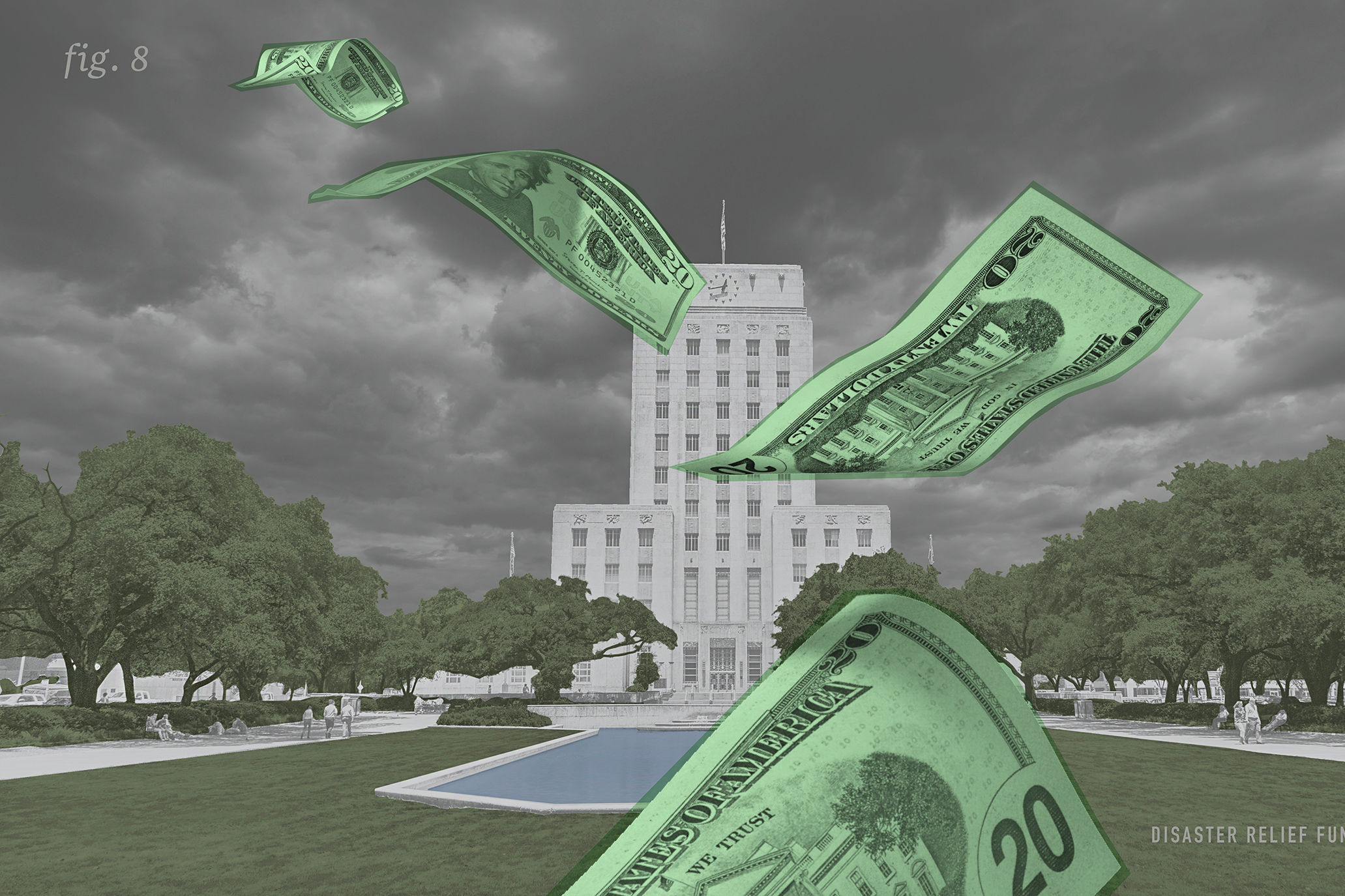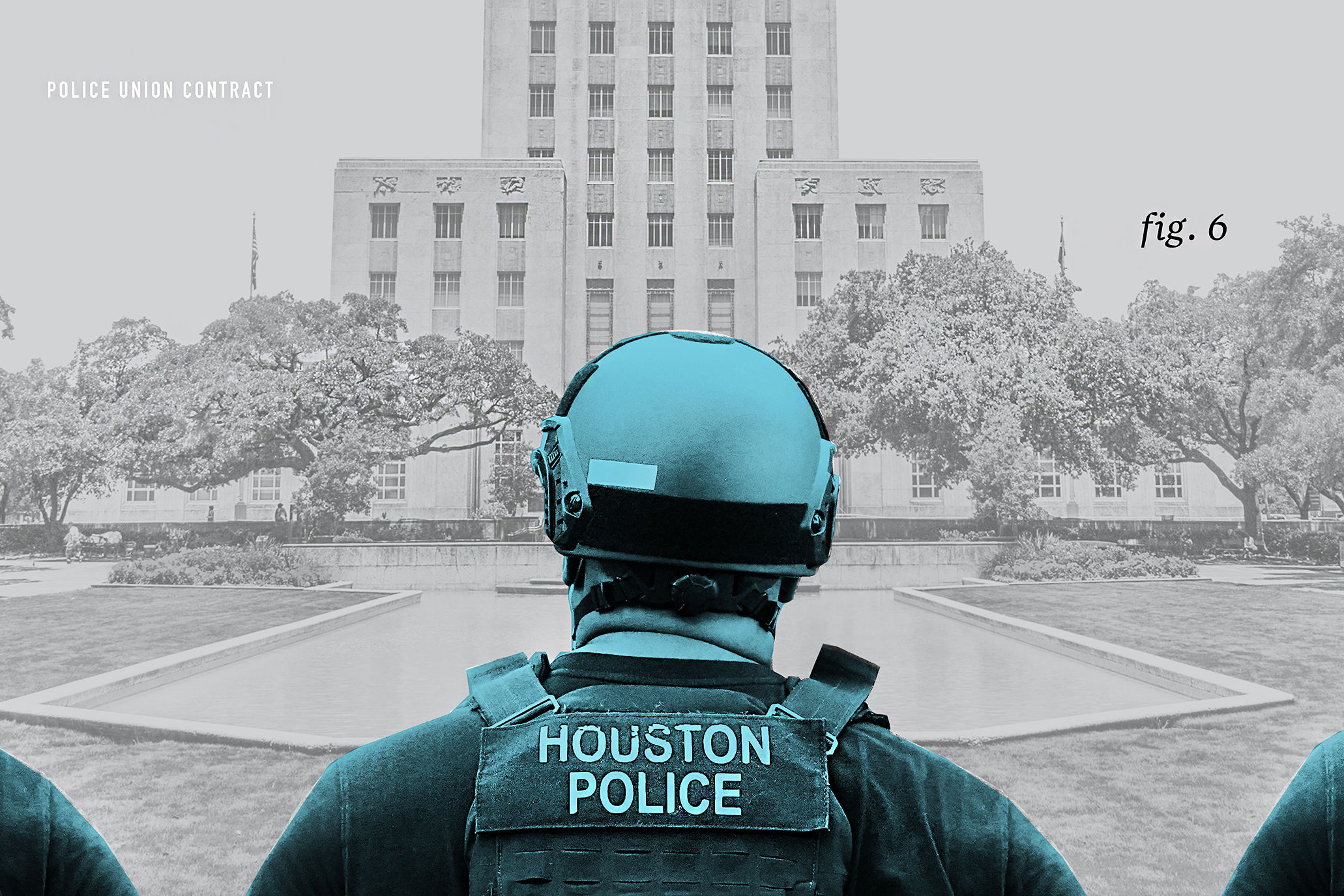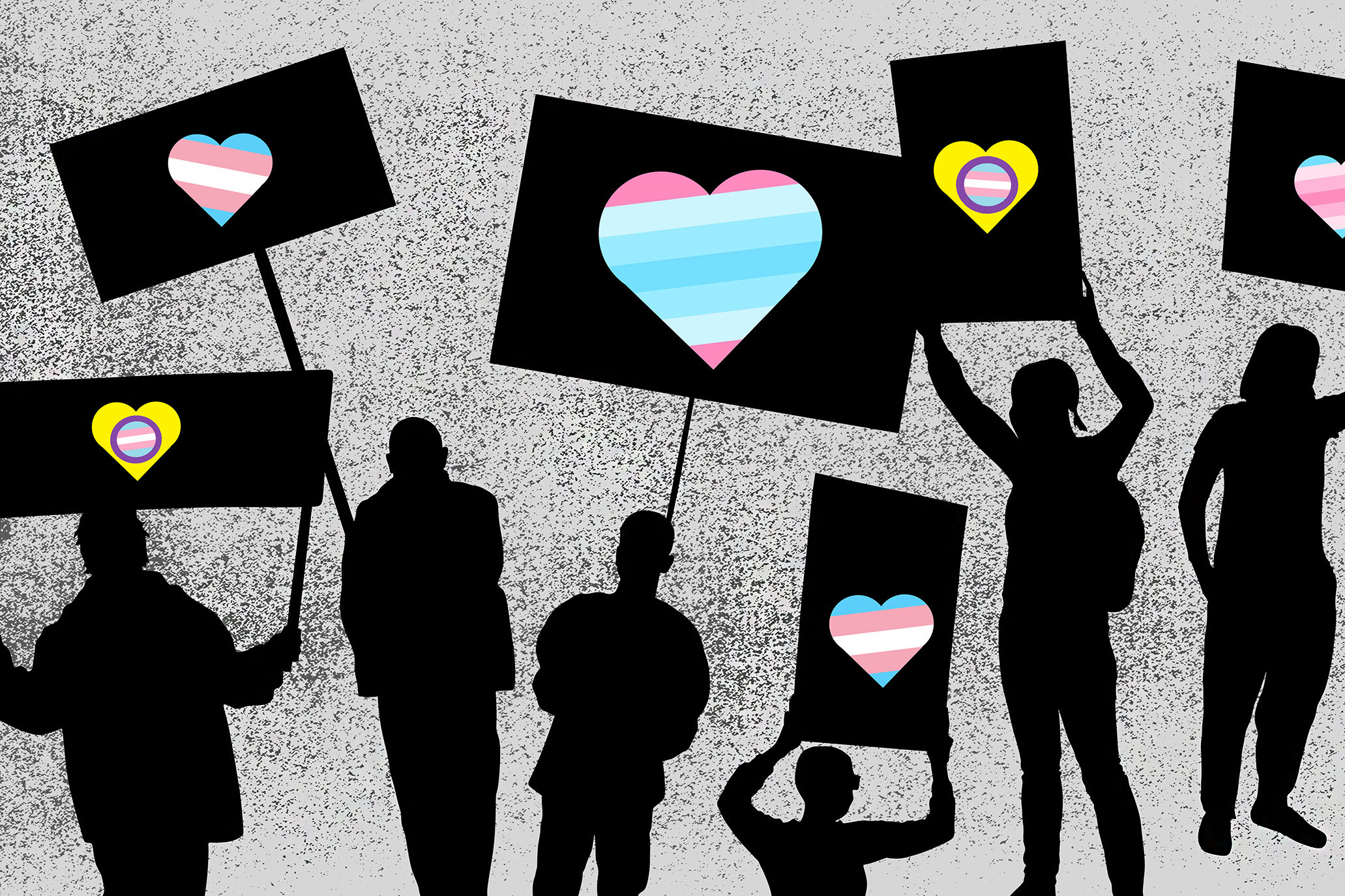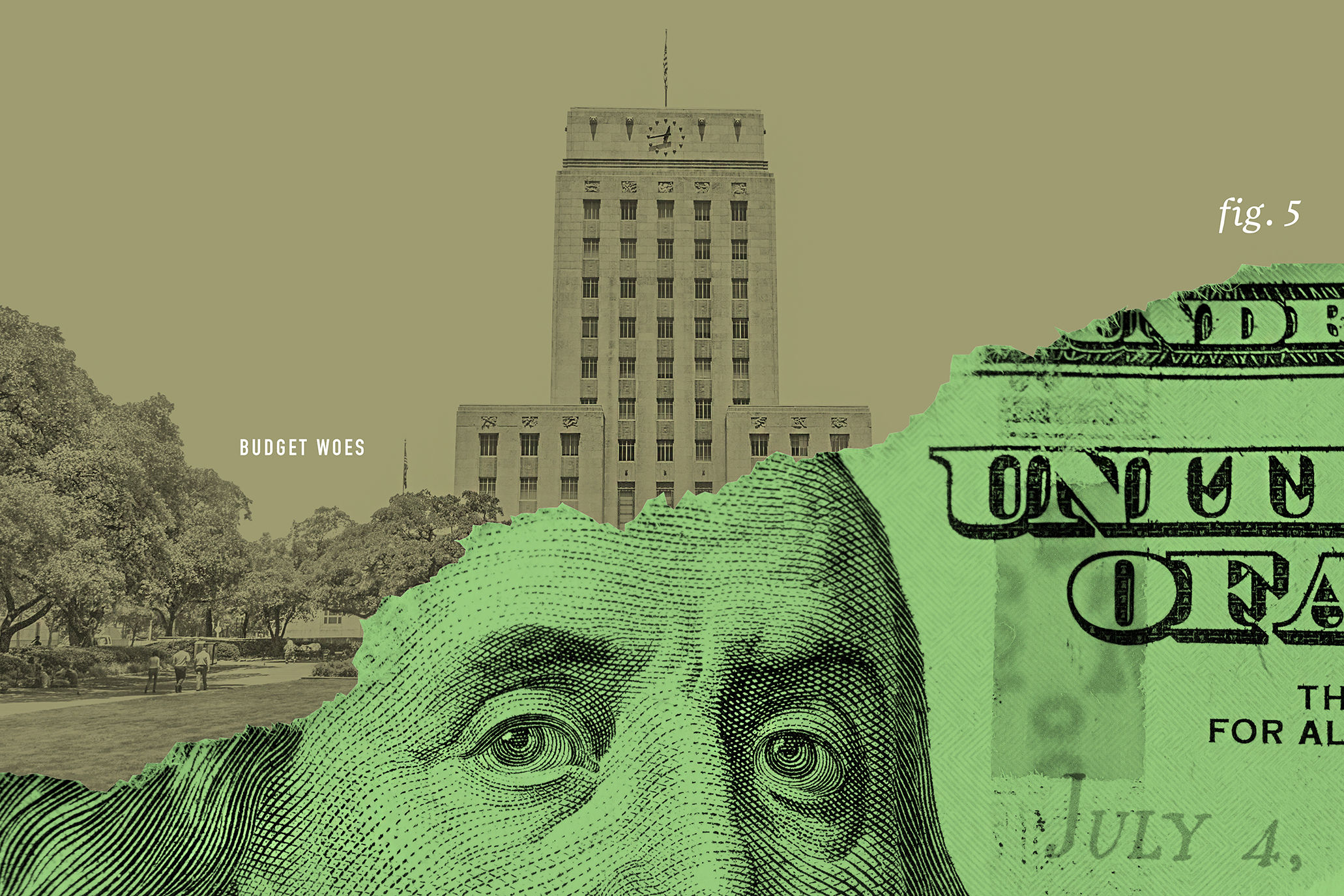A Mayor Considers Her Legacy
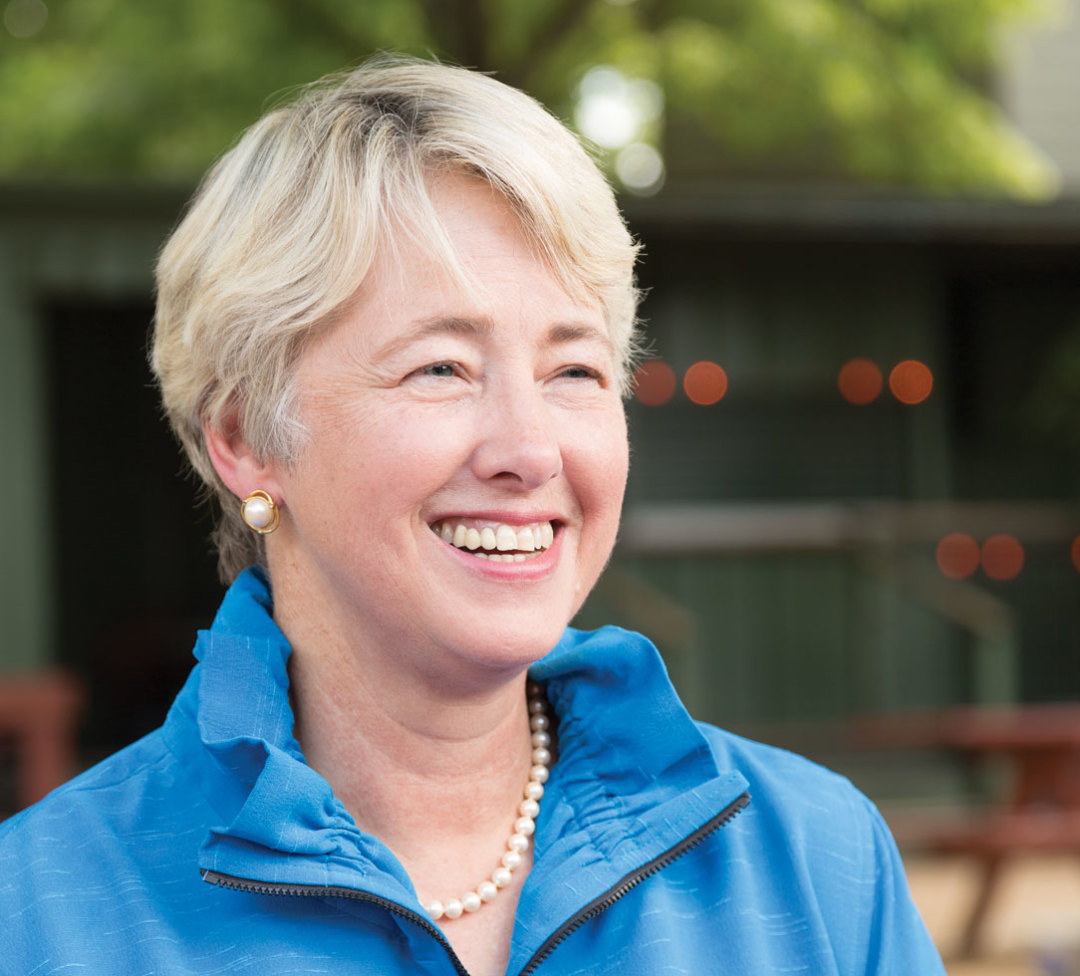
Image: Justin Calhoun
It’s a Friday afternoon in August, and the West Alabama Ice House regulars are understandably surprised when Annise Parker suddenly shows up. For one thing, she is the mayor of Houston. For another, she hasn’t set foot in the place in 30 years. Also, Parker isn’t a beer drinker. Also, it is hot as hell.
Still, here she is, taking a seat at a picnic table out back, just like one of them. And she might have fit in, too, even with the security detail, even wearing a bright blue jacket in August, if not for one thing.
“She never sweats. I don’t understand why,” an aide to the mayor confides to us. Indeed, Parker never so much as glistens during our 40-minute exit interview, a vision of calm-and-collectedness that might be mistaken for hubris in any other elected official. For Parker, however, like the city she’s reintroduced the nation to during her three terms as mayor, the coolness appears to come naturally. Neither is flashy, neither will ever be mistaken for poetry, but both get the job done.
What’s the best part of being mayor, we ask. The answer is classic Parker.
“Being able to make things happen.” That’s it? Making things happen? “And to see a direct correlation between cause and effect.”
Logical, pragmatic, methodical, ever budget-conscious, Parker loves nothing more than figuring out how to get from A to B. And so the mayor of America’s fourth-largest city is a list maker.
“There are thousands of things that we work on every week—a lot of big decisions, a lot of small decisions, things coming on the agenda, ordinances,” she says. “I started keeping a list so I could keep track of where they were in the pipeline. And then I started having so much fun when I could check them off. And it’s like 13 pages single-spaced now.” She smiles, pleased at the thought.
And if you were an unflashy, A-to-B, list-making mayor, what would be up there on the list of your proudest accomplishments? Why, infrastructure, of course.
“It’s not sexy.” No, it isn’t. “It’s not short-term.” Ditto. And at least on the evidence of some of Houston’s roads, some might not even consider it an accomplishment.
“I know people don’t believe it,” she tells us, “but in about five years Houston’s going to have more and better infrastructure than any place in the country. We are on a path to sustainability in terms of both street and drainage infrastructure and water and sewer infrastructure.”
Then again, the thing she’s proudest of is also “the thing people dislike most about me,” mainly because the city hiked water bills to pay for Parker’s improvements, and put projects on pause until the money for them was sitting inside the city’s coffers. “You pay as you go,” she says in a patient voice. Parker’s explained her oft-criticized ReBuild Houston program a million times, of course, and this is the millionth-and-one. “It’s the difference between paying cash for a house and taking out a mortgage. Because we’re having to pay cash for the house, it slowed the projects down. So I had to be willing to be blamed for not having street and drainage projects for a couple of years in order to transition us to a pay-as-you-go system.”
And Parker’s passion for infrastructure demonstrates more than just disdain for the sexy and short-term—the willingness to make unpopular decisions. “Most mayors would rather not think about it, because by the time you make an impact you’re out of office. The next mayor’s going to look great in about two years.”
Then again, as she readily admits, sometimes tenacity isn’t enough, which leads us to the thorny subject of firefighter pensions. “I have no problem making tough decisions, I have no problem picking fights,” she says of her renegotiation efforts, which would have saved the city money by reducing new hires’ pension benefits.
Unlike those of police and municipal workers’, firefighter pensions are determined by the state legislature, and yet are a huge part of the city’s debt. “If I had it in my hands, we would’ve addressed it. We would have a secure pension for our retirees and we would have budget stability.” At the end of the day, however, Parker’s efforts to wrest control of pensions from the state failed. For that, the mayor gives herself a “big, fat F,” she says, although an “A for effort.”
That said, she believes her political opponents are overblowing the city’s budgetary woes. “There’s this hysteria. Are we Detroit? No, of course we’re not Detroit. Detroit had a whole lot of problems. One of the problems with Detroit is that everybody was leaving. Detroit was a city of vacant buildings. We are a city that’s growing. Our economy is still expanding…. But you don’t wait to solve a long-term problem until the last day. You try to work on it early.”
The drop in oil prices also needs to be kept in perspective, Parker says. “I spent 20 years working in the oil industry before I came into politics,” she says, “and when I went into the oil industry in the late ’70s early ’80s, it was 80 percent of the Houston economy. It’s still 40 percent…so it matters tremendously, but on the other hand we have America’s largest foreign tonnage port, we have the Texas Medical Center, we have NASA and aerospace and high tech, we have manufacturing, so we’ve broadened and deepened our economic base here. So, oil is still king, but it’s not the only power in the region.”
Moving on: is Parker worried that the Houston Equal Rights Ordinance will be voted down, tarnishing her legacy? “I’m frustrated that it’s on the ballot. Here we are in 2015 and we’re having to vote on whether it’s okay to discriminate against people.” While confident that a majority of Houstonians are in favor of HERO—the first-ever local ordinance dealing with 15 protected classes, including gay and transgender Houstonians—she worries about complacency. “I’ve been in politics for a long time, and it’s all about who shows up at the polls.”
We ask Parker about Houston’s place in Texas, our reputation for being a blue city in an ocean of red. In her view, we actually have plenty in common with the rest of the state. A shared pragmatic stance on immigration, for one: “We recognize that a lot of our economy is fueled by undocumented immigrants… and that, if they’re peaceful and law-abiding, we leave them alone,” she says. “If they break the law, we arrest them, we run them through ICE, we turn them over, and they get deported.”
City and state also both have a “frontier mentality,” she adds. “It doesn’t matter where you came from or who your people are, it’s what you can do…and I love that. And that’s what allows us to bridge some of these partisan divides.” Parker—a Spring Branch kid who grew up and went to Rice—shares that mentality, of course, having benefited from Houstonians’ embrace of it throughout her tenure. The majority supported her, again and again, not because she did or didn’t charm their socks off, or was or wasn’t gay, but because of what she could do for them.
She happily checks off these achievements during our ice house chat, almost as if she’s going through her cherished 13-page list. She mentions everything from the way she tackled issues like homelessness and public safety to quality-of-life improvements, especially “the investment in parks and green space, particularly the 2020 Bayou Greenways Project, where we’re putting the trails along the bayous. Again, I’m starting it, but I won’t be around to finish it.”
Yes, we’re a work in progress, but there’s no arguing that Houston 2.0—the greener, more livable, easier-on-the-eyes city, the one people actually move to on purpose—came into its own under Parker, as did Houstonians, who at last began to express pride in their city. Parker says she doesn’t know if we were insecure before she took office—before we started getting named, as she puts it, “best of this and best of that”—or if we just didn’t care what people thought. But like a true blue Houstonian with a complicated self-image, she’s quick to say that the city’s always been cool, and that deep down we knew it all along. “We were like, yeah, we’re Houston, we knew it,” she says.
And while the rest of the country is at last coming to understand our specialness, there’s still progress to be made. “Houston has been known as a city of business, a city where you can come to make a living. I want Houston to be known internationally as a city in which one comes to live.”
“And we’re getting there….We’re better known across our borders than across our state lines. Now it’s getting better in the United States, and I’ll take some credit for that, because when I was elected, there was worldwide media coverage: ‘Houston elected a lesbian mayor.’ ‘Houston? How’d that happen in Houston?’” Parker leveraged her moment in the spotlight, she says, to deliver a message: “You don’t understand this city, you don’t understand what happens here, you don’t understand why I was able to get elected and how international Houston is, and how fun and cool and so forth.
“And all of a sudden, people started paying attention. And then every best-of list that came out, suddenly Houston’s on it. It’s not that Houston became cool when I was elected, it’s that people started paying attention when I was elected.”
Parker hopes the momentum continues. As for her own life post–City Hall, she doesn’t want to take her eye off the ball. One thing she isn’t planning is a Texas wedding for her and longtime partner Kathy Hubbard, even though it’s legal now. “One’s enough, we don’t have to get married again,” she says, referring to the pair’s nuptials a year-and-a-half ago in California, adding that Kathy has supported her every step of the way. Their children are really looking forward to a break from the limelight, Parker admits, although how long that break will last is anyone’s guess. She would seem poised to run for statewide office in 2018, and Parker doesn’t deny she’s considering it. How her persona might play on the state level remains to be seen, as does her contention that Houston and Texas have much in common.
Even as the boiling afternoon chat at West Alabama comes to a close, however, Parker pledges to stay focused on the job at hand—checking off a few more items on that list—to the end. “They’re going to have to pry my fingers off the door,” she says, only half laughing. “I’m going to be working until the last day. I love what I do. I love this city. It’s my hometown, and I want to continue to improve it.”
And while she also doesn’t plan to hover over the shoulder of Houston’s next mayor, whoever that might be, she happily offers a few free words of advice.
“Being mayor is not a popularity contest,” she says. The work is never easy, and it’s not always fun either. Still, it’s “a great job because it allows you to shape the future of a great city. You have the ability to transform people’s lives for the better and set the agenda for Houston for decades into the future. And that’s just a gift.”
